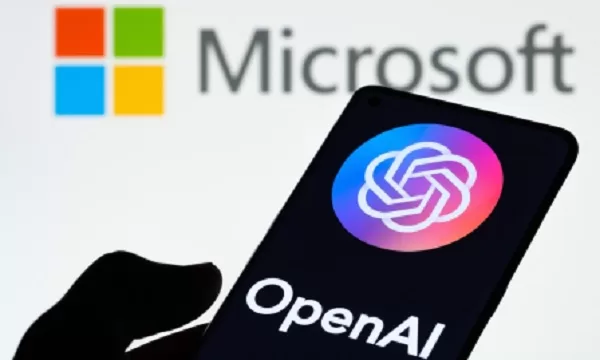SAN FRANCISCO ― EU antitrust regulators have concluded that Microsoft’s $13 billion investment into OpenAI is not an acquisition, sources familiar with the matter said, signaling the deal will avoid a formal European probe that could have led to onerous remedies for the US tech giant.
The regulators had said in January that the deal may be subject to merger rules in the region.
Microsoft, OpenAI and a spokesperson of the European Commission did not immediately respond to Reuters requests for comment.
Microsoft is not out of the woods, however, with the EU competition enforcer still looking into partnerships between large digital market players and generative AI developers and providers that could lead to intrusive and lengthy investigations in their market power.
Bloomberg News first reported the development.
Google, meanwhile, unveiled a host of updates to its artificial intelligence offerings for cloud computing customers, emphasizing that the technology is safe and ready for use in the corporate realm, despite recent stumbles in consumer-facing tools.
At the company’s annual cloud computing conference in Las Vegas recently, Cloud Chief Executive Officer Thomas Kurian showed off how Google’s most powerful AI model, Gemini, can be used to create advertisements, ward off cybersecurity threats and spin up short videos and podcasts.
Corporate customers will be able to peg Gemini’s query responses to reliable sources of information, known as grounding.
The company is rolling out the use of Google search results as a source for the AI model’s answers, thereby providing greater accuracy and freshness, Kurian said.
“Enterprises have been piloting with us a number of scenarios with generative AI; now they’re deploying them in production,” Kurian said in an interview with Bloomberg recently.
“The capabilities to do things like grounding, improving correctness of answers – all of those, step by step, people have gotten comfortable, they’re seeing value, and they’re deploying as a result.”
Google, a unit of Alphabet Inc., trails Amazon.com Inc. and Microsoft Corp. in cloud computing, but the market is one of the tech giant’s best bets for growth as its core search advertising business matures. Google reported the first full year of profitability at its cloud unit in 2023 and hopes to use its prowess in AI to close the gap with rivals.
After OpenAI’s ChatGPT burst onto the scene in late 2022 and was quickly embraced by college students and the general public, Google and its cloud competitors see 2024 as the year the technology conquers the corporate world.
The race among the tech powerhouses is on. Google’s chief rival in artificial intelligence, the Microsoft-backed startup OpenAI, is also courting corporate customers.
OpenAI now has more than 600,000 people signed up to use ChatGPT Enterprise, up from around 150,000 in January, Chief Operating Officer Brad Lightcap said last week.






Discussion about this post